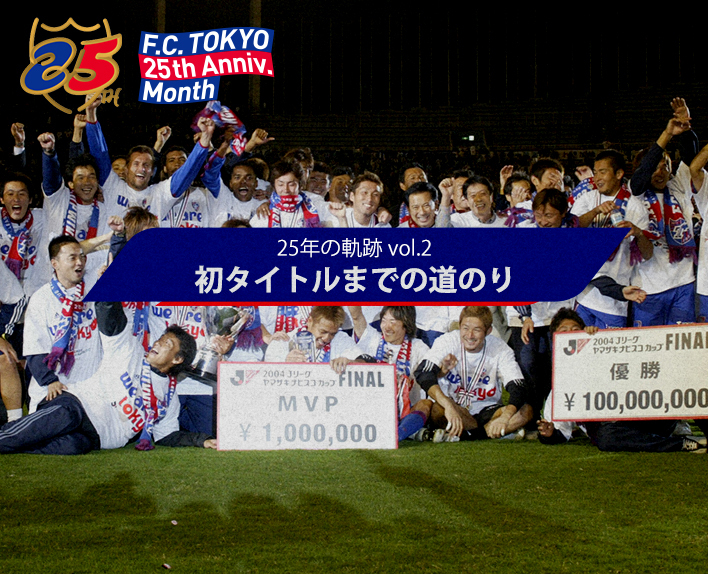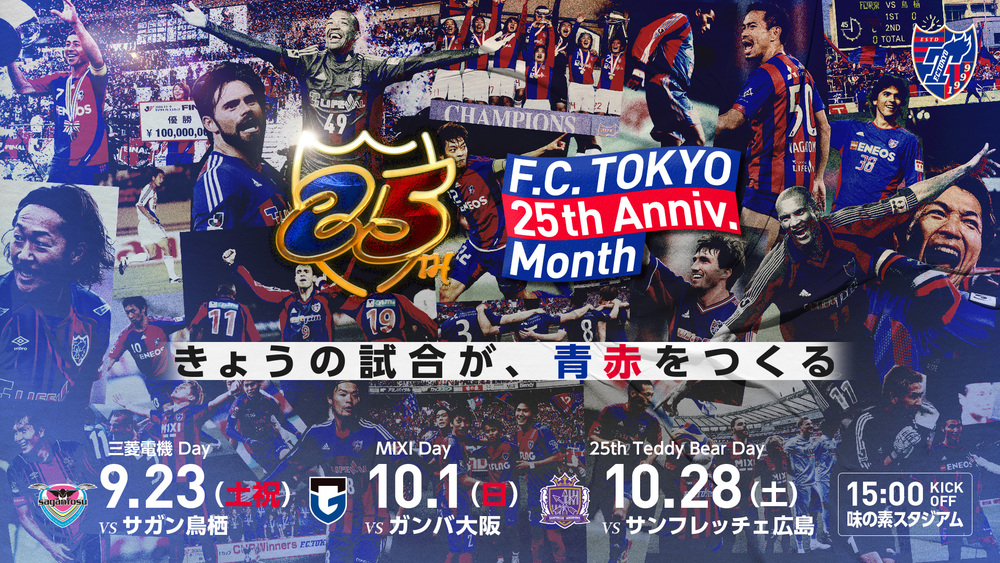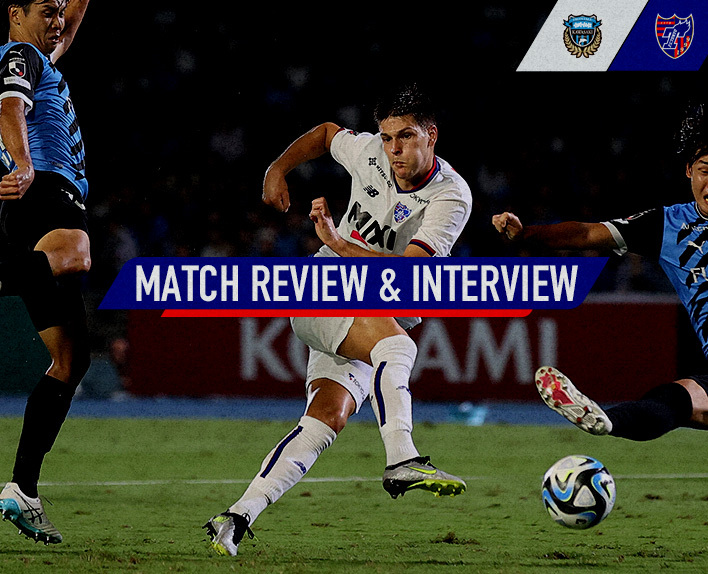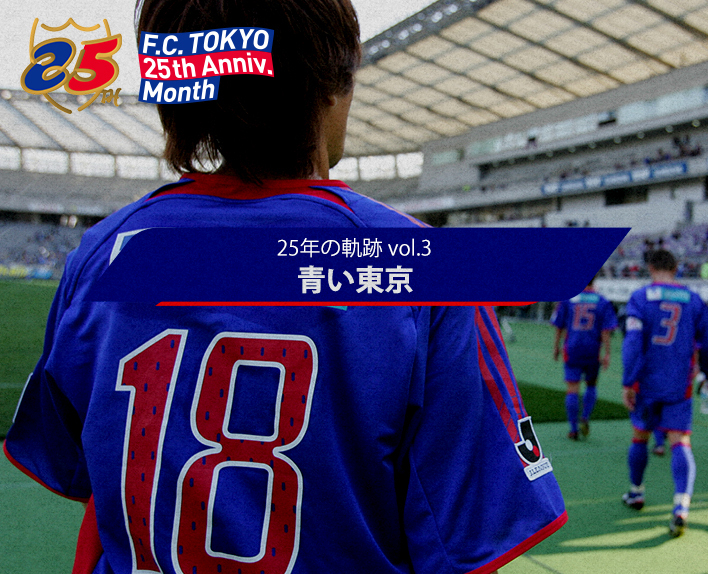In the 2000 season, which was their first challenge in the J1 League, the opening match against Yokohama F.Marinos saw Amoroso acquiring a penalty kick, which was then passed on to Tuta, marking the memorable first goal in the J1 League. They won the match 1-0 and started a Tokyo whirlwind. With the goal of remaining in the J1 League, in the 2001 season, Kelly joined the team from Brazil in a surprise move. The match, which was held as the Tokyo Stadium's inaugural game, was won against Verdy with a goal from Wagner LOPES. Although they finished in the middle of the standings for the season, it became a solid foundation for the club to be worthy of the J1 League over the course of two years.
Aiming for further improvement, the 2002 season welcomed Hiromi HARA as the new coach. The team consisted of unique members with reliable skills, including new additions Teruyuki MONIWA, Jean, and Naohiro ISHIKAWA. Based on the tradition of solid defense, they advocated "attacking football" and in the 2003 season, they came closest to winning the league championship for the first time.
The side attack launched by Ishikawa and Akira KAJI is a threat, and in the 1st stage they achieved their highest ranking of 4th place. "If only" is forbidden, but in the 2nd stage Sec. 13 match against Gamba Osaka, Tokyo's scoring opportunities were all thwarted by the opposing goalkeeper, Naoki MATSUSHIRO. If we had won here... If we had scored a goal in the next Verdy match... These are also facts that brought about a "serious regret".
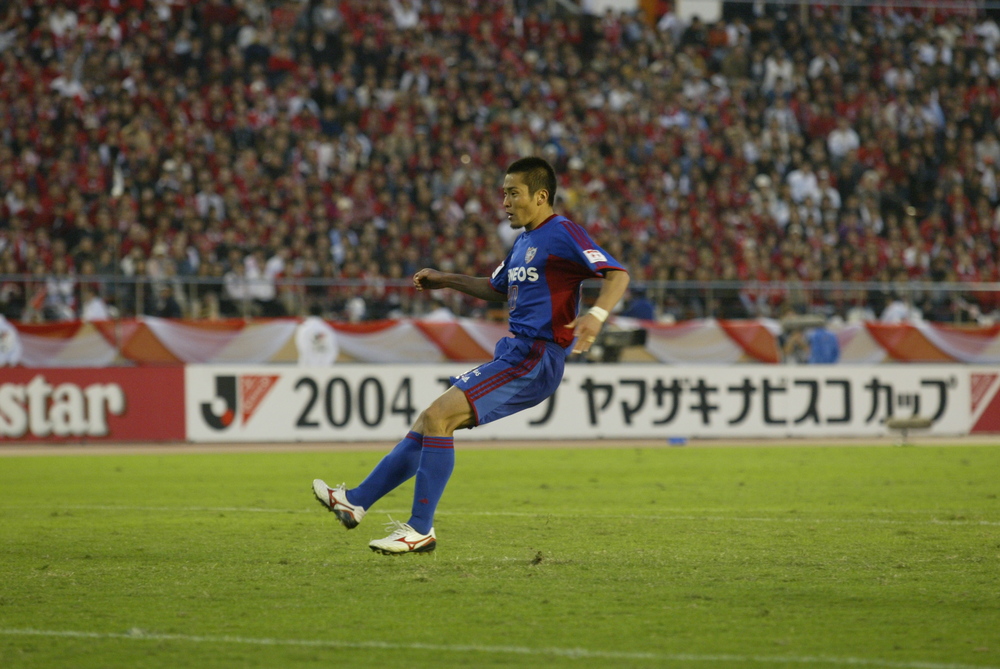
The road to winning the club's first title in the 2004 season, the Nabisco Cup, was not an easy one. The quarterfinal match against G Osaka was delayed due to the impact of a typhoon. The semifinal was postponed.
Despite being troubled by bad weather and adjustments, the match against Verdy, which we welcomed, took a 3-0 lead in the first half. We entered the second half with a numerical advantage against Verdy, who had a player sent off. However, we were caught off guard and quickly equalized. Under the tense atmosphere, the sound of Verdy's Hiramoto Kazuki's shot hitting the post right after the equalizer still echoes in our ears.
However, the trust in Hitoshi SHIOTA, who has protected Tokyo's goal in all 8 matches so far, remained unshaken, and it was Lucas' experience and composure that put an end to the fierce battle. 40 seconds into extra time, Yoshiro ABE scored a header from Masashi MIYAZAWA's kick, which was obtained from a corner kick. Without this winning goal, the club would not have had its first title, of course.
In the final round, Jean's tears, Fumitake Miura's ruthless substitution, Ryuji Fujiyama's outstanding performance as a substitute, and Jakkit stepping up as the fifth penalty kick taker... Unexpected and dramatic developments continued, but they truly won the championship through a united effort.
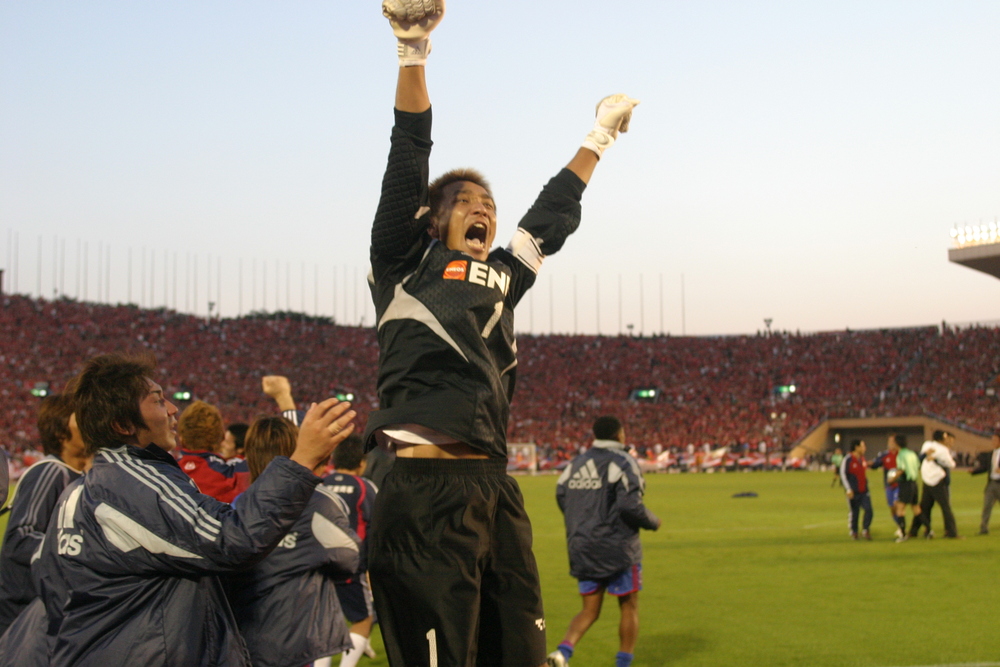
This changes the position from being chased to being chased from the position of chasing. Each person has further ignited their ambition to be a team worthy of the J1 League and to be a team that continues to compete for the championship.
However, Coach Tadashi initially said, "Tokyo is filled with entertainment. In the midst of that, I want people to pay attention to soccer and come to the stadium..." and I think his gaze was always empathetic towards the spectators.
The team is still far from mature, and there is a certain instability that makes it nerve-wracking. However, they showed determination and spirit to keep running until the end, aggressively trying to regain what was lost. FC Tokyo tried to express and share the pure charm and refreshing joy that soccer possesses. Isn't that still the origin of Tokyo that is being passed down?
Text by Yū Fujiwara (Freelance Writer)
【25-year history】Special column is here
25-year history vol.1 Things that must not be forgotten
25-year history vol.3 Blue Tokyo
